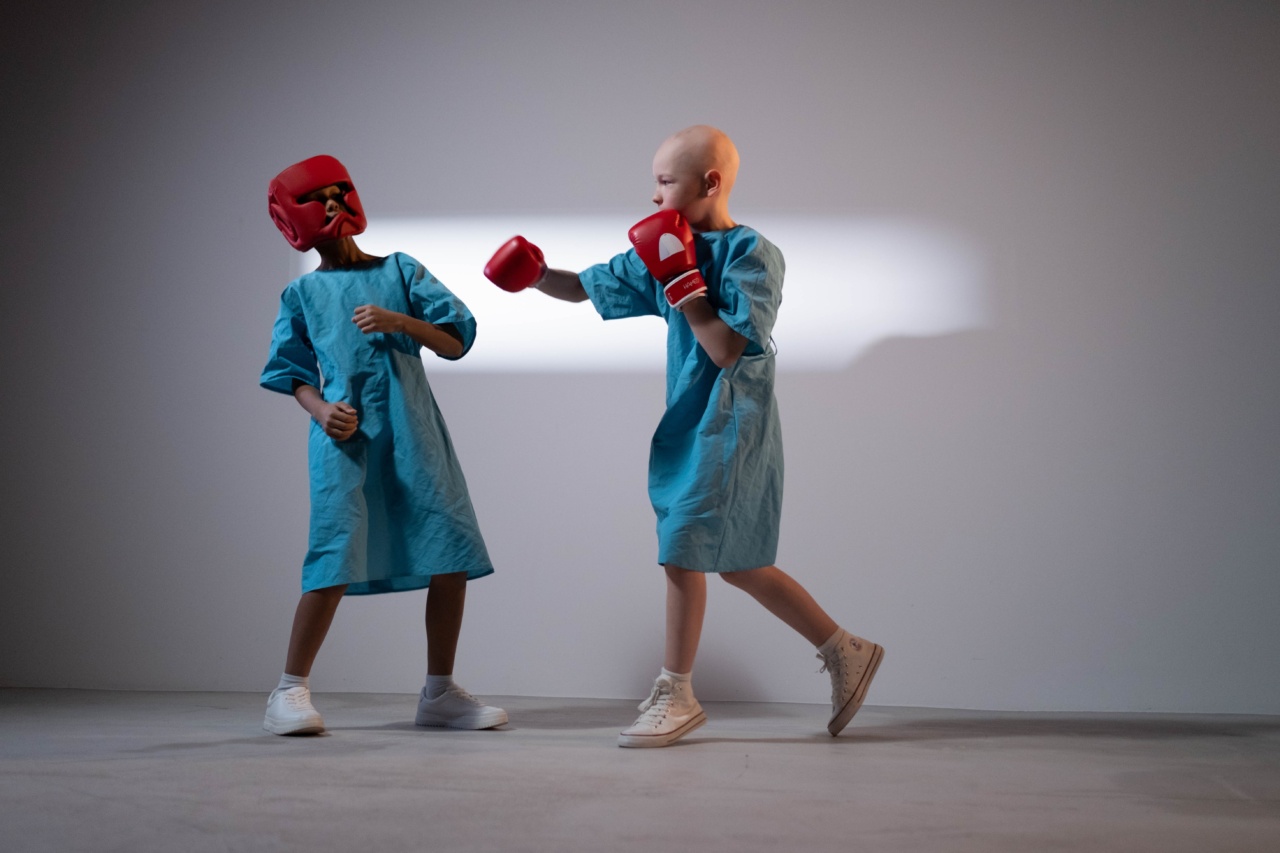Cancer is a daunting diagnosis that has the power to instill fear in the hearts of even the bravest individuals. The word itself carries a heavy weight, conjuring images of pain, suffering, and mortality.
It is no surprise that the fear factor is prevalent among cancer patients, as they grapple with the uncertainty and challenges that accompany their journey.
The Initial Shock and Denial
Upon receiving a cancer diagnosis, many patients experience a profound sense of shock. The news may be completely unexpected, and the sudden shift from a regular life to a battle against a life-threatening disease can be overwhelming.
Denial often follows, as patients find it difficult to accept their new reality. They may struggle to wrap their minds around the fact that they have cancer, refusing to believe that their lives will never be the same.
The Fear of the Unknown
One of the biggest sources of fear for cancer patients is the unknown. The uncertainty surrounding prognosis, treatment outcomes, and potential side effects can be terrifying.
Questions like “Will I survive this?” and “How will my body respond to treatment?” loom large in their minds. Fear of the unknown can lead to anxiety and sleepless nights, as patients navigate uncharted waters.
The Fear of Pain and Physical Discomfort
Cancer and its treatments often come with pain and physical discomfort. Some treatments, such as surgeries, chemotherapy, and radiation therapy, can cause significant pain and distress.
The fear of experiencing these painful procedures can be overwhelming for patients, making them hesitant to undergo necessary treatments. Moreover, the fear of long-term pain and suffering can cast a dark shadow on their fight against cancer.
The Fear of Death and Mortality
Mortality is an inescapable part of the human condition, but for cancer patients, thoughts of death become more pronounced. The fear of dying prematurely and leaving behind loved ones can be paralyzing.
Patients face their own mortality head-on, contemplating their legacy and what will happen to their families after they are gone. This fear can lead to feelings of depression, anxiety, and a constant reminder of their own mortality.
The Fear of Treatment Side Effects
Cancer treatments often come with a host of side effects that can be physically and emotionally challenging.
These side effects can range from mild discomfort to debilitating symptoms, depending on the type and stage of cancer, as well as the specific treatment regimen. Patients may fear losing their hair, experiencing nausea and vomiting, becoming weak and fatigued, or suffering from long-term complications. The fear of treatment side effects can sometimes outweigh the fear of the cancer itself.
The Fear of Financial Burden
Cancer treatments can be expensive, and the financial burden associated with the disease can be a significant source of fear for many patients.
The cost of medications, hospital stays, tests, and procedures can add up quickly, placing an enormous strain on patients and their families. The fear of bankruptcies, debt, and not being able to afford necessary treatments can compound the already overwhelming emotional stress of a cancer diagnosis.
The Fear of Social Isolation
Cancer can be an isolating experience. Patients may feel disconnected from their friends and loved ones, as their priorities and daily lives change dramatically.
The fear of abandonment, losing relationships, or being treated differently by others can lead to social withdrawal and a sense of loneliness. Cancer patients often yearn for understanding, support, and a sense of community during their battle, and the fear of social isolation can exacerbate their emotional challenges.
The Fear of Recurrence
Even after successfully completing treatment, cancer patients live with the constant fear of recurrence. The fear of the disease coming back and having to go through the entire process again can be all-consuming.
Routine follow-up appointments, scans, and tests become sources of anxiety, as patients anxiously await the results. Fear of recurrence can overshadow the joy of being in remission, making it difficult for cancer survivors to fully embrace life beyond cancer.
The Fear of Unfinished Business
Cancer patients often grapple with the fear of leaving important things unfinished. Whether it is unfulfilled dreams, unresolved conflicts, or unrealized goals, the sense of time slipping away can be agonizing.
Patients may feel an urgent need to tie up loose ends, make amends, or create a lasting legacy. The fear of not being able to accomplish what they set out to do can be a powerful motivator, driving them to make the most of the time they have left.
The Fear of Losing Control
Cancer can strip away a person’s sense of control over their own lives. From the moment of diagnosis, patients are thrust into a whirlwind of medical appointments, treatments, and decisions.
The fear of losing control over their bodies, their treatment plans, and their overall well-being can be deeply unsettling. Learning to trust the healthcare team and the treatment process becomes essential in managing this fear and regaining a sense of control.
The Importance of Addressing and Managing Fear
The fear factor in cancer patients is undeniably significant, and it is crucial for healthcare providers, caregivers, and loved ones to address and support patients in managing their fears effectively.
Open communication, compassion, and empathy are vital in creating a safe space for patients to express their fears and concerns. Additionally, the integration of supportive care services, such as counseling, support groups, and complementary therapies, can offer valuable tools to manage fear and improve overall well-being.
In Conclusion
Fear is an intrinsic part of the cancer experience. It manifests in various forms, stemming from the uncertainty, pain, mortality, and emotional turmoil associated with the disease.
Recognizing and acknowledging the fear factor is crucial in providing holistic care to cancer patients. By addressing their fears, supporting them emotionally, and empowering them with knowledge and resources, healthcare providers and loved ones can help individuals on their cancer journey navigate their fears and find strength, resilience, and hope.






























